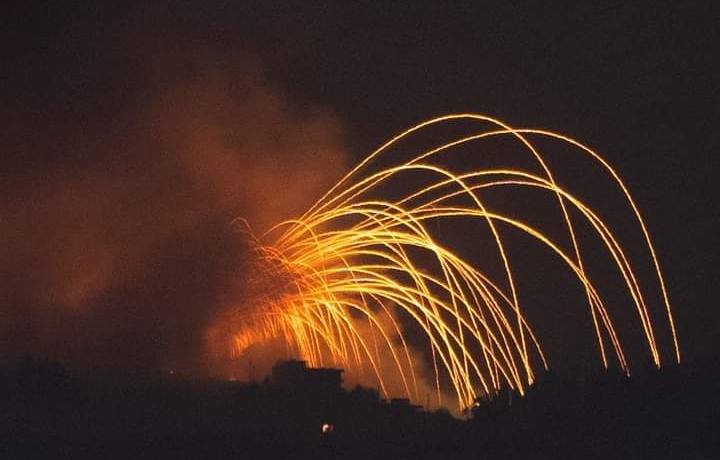The Israeli military engaged in intense fighting with Hezbollah on Tuesday following a “limited” ground incursion into southern Lebanon. The cross-border operation has opened a new front in Israel’s year-long war against its Iranian-backed adversaries, marking a significant development in the already volatile region.
The Israeli Defense Forces (IDF) paratroops and commandos spearheaded the incursion, targeting Hezbollah militants and their infrastructure. The incursion represents a bold and calculated move by Israel, signaling its unwavering determination to confront and neutralize the threat posed by Hezbollah, a militant group with significant influence in Lebanon and strong backing from Iran.
In a show of solidarity, US Defense Secretary Lloyd Austin offered support to Israeli Defense Minister Yoav Gallant for “dismantling attack infrastructure” along Lebanon’s border with Israel. The United States’ backing underscores the strategic importance of the region and the broader geopolitical implications of the conflict between Israel and Hezbollah.
Tensions have been further exacerbated by recent events, including an air strike south of Beirut which resulted in the killing of the leader of the Lebanese Hezbollah group, who was known to be backed by Tehran. Israeli Prime Minister Benjamin Netanyahu issued a stern warning to Iran in the wake of the air strike, emphasizing Israel’s resolve to confront any threats to its security with decisive action.
Meanwhile, Hezbollah deputy leader Naim Qassem made a defiant statement, vowing to appoint a new leader and continue the fight against Israel. His remarks come in the aftermath of the killing of Hassan Nasrallah, the former leader of Hezbollah, signaling the group’s determination to maintain its militant activities despite the loss of its leader.
The latest developments have sent shockwaves throughout the region, raising concerns about the potential for further escalation and the impact on civilian populations in Lebanon and Israel. The conflict between Israel and Hezbollah has deep historical roots and has been characterized by periodic outbreaks of violence, but the recent ground incursion represents a significant escalation that has captured the attention of the international community.
As events continue to unfold, the world watches with bated breath as the conflict between Israel and Hezbollah enters a new and potentially perilous phase, with far-reaching implications for the stability and security of the Middle East.




